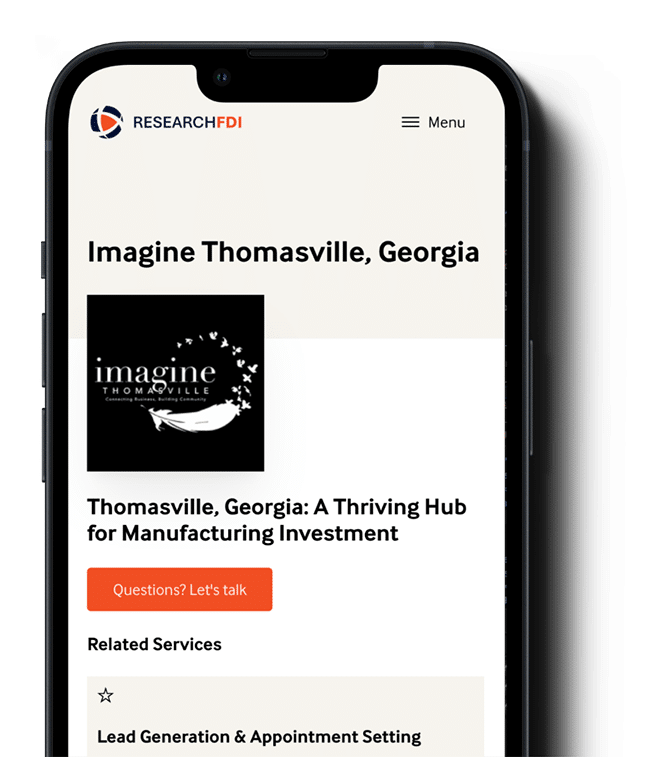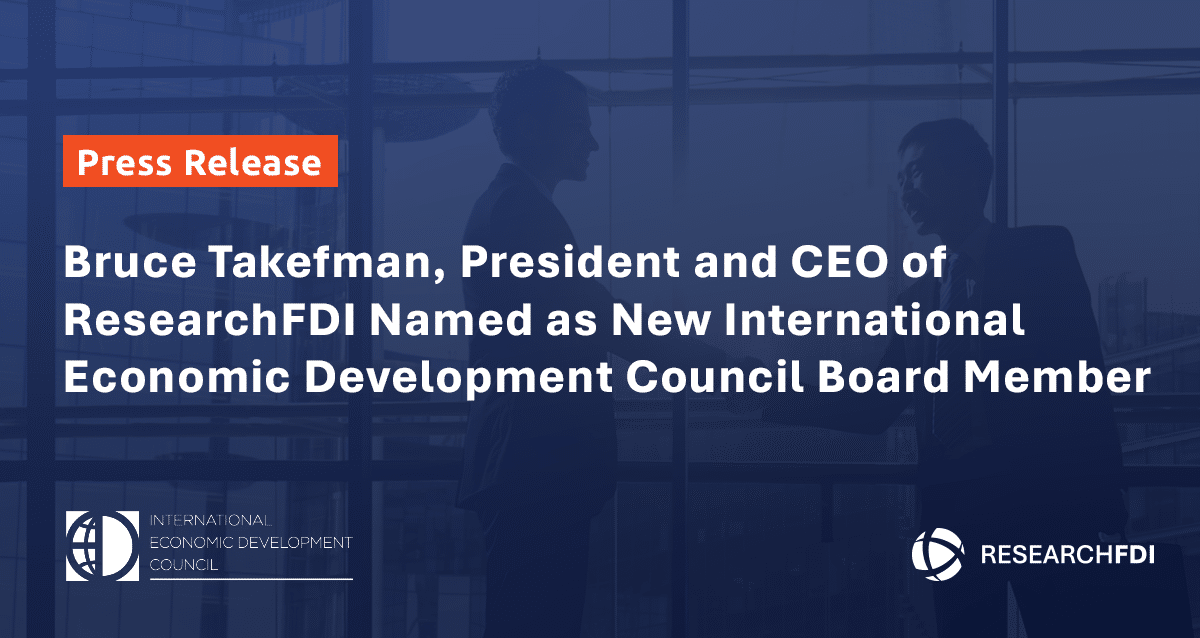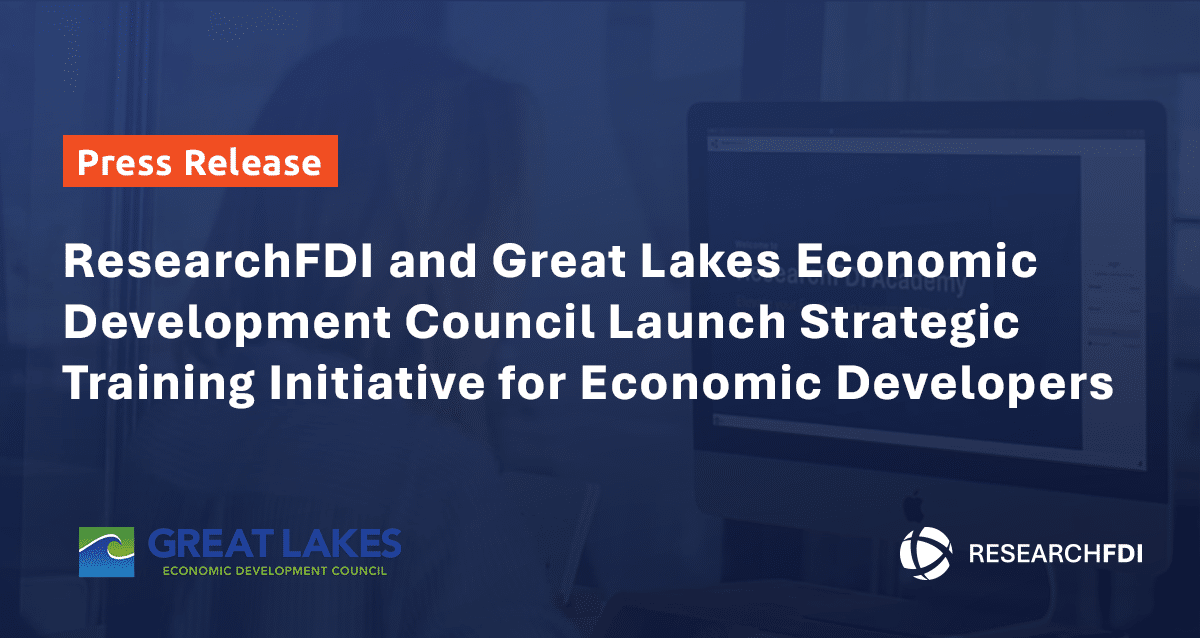Articles
The Latest
Explore expert insights and industry trends shaping economic development and FDI
Vertical FDI Explained: How Companies Expand Supply Chains Globally
November 19, 2025
Pick up almost any product in your home – a phone, a car part, a bottle of shampoo – and you’re holding the story of multiple economies working together. A single smartphone might rely on lithium from Chile, semiconductors from Taiwan, and assembly lines in Vietnam. The efficiency of that chain doesn’t happen by chance.…
Featured Article
The UK’s HS2’s Real Impact: What High-Speed Rail Means for FDI Readiness
November 6, 2025
The United Kingdom’s High Speed 2 (HS2) project is more than a rail line. Instead, we can see it as signifying a new era for high-speed connectivity and regional growth. After more than a decade of planning, debates, and designs, HS2 has officially moved from blueprint to reality. Trains capable of reaching 225 mph will…
Featured Article
Empowering IPAs Through Capacity Building: Reflections from WAIPA’s WIC-SIF 2025 in Sharjah
October 30, 2025
Discover how capacity building is shaping the future of Investment Promotion Agencies. Insights from WAIPA’s WIC-SIF 2025 highlight strategies for sustainable growth and FDI attraction.
Featured Article
Get more resources like this delivered straight to your inbox.

Vertical FDI Explained: How Companies Expand Supply Chains Globally
News & Media
Pick up almost any product in your home – a phone, a car part, a bottle of shampoo – and you’re holding the story of multiple economies working together. A single smartphone might rely on lithium from Chile, semiconductors from Taiwan, and assembly lines in Vietnam. The efficiency of that chain doesn’t happen by chance.…

The UK’s HS2’s Real Impact: What High-Speed Rail Means for FDI Readiness
News & Media
The United Kingdom’s High Speed 2 (HS2) project is more than a rail line. Instead, we can see it as signifying a new era for high-speed connectivity and regional growth. After more than a decade of planning, debates, and designs, HS2 has officially moved from blueprint to reality. Trains capable of reaching 225 mph will…

Empowering IPAs Through Capacity Building: Reflections from WAIPA’s WIC-SIF 2025 in Sharjah
FDI Insights, News & Media
Discover how capacity building is shaping the future of Investment Promotion Agencies. Insights from WAIPA’s WIC-SIF 2025 highlight strategies for sustainable growth and FDI attraction.

Preparing for Robotaxis: What EDOs Need to Know Now
FDI Insights, News & Media
It’s a busy evening in San Francisco and you’re heading out to meet friends. A white taxi glides to the curb. The door unlocks. You climb in. It’s almost like every other taxi experience you’ve ever had…. Except: No driver turns around to ask where you’re going. The scene isn’t speculative. Driverless Waymo taxis are…

ResearchFDI Academy and IEDC Partner to Elevate Global Investment Attraction Training, Launch Celebrated at IEDC Annual Conference in Detroit
Announcements, Press Release
Montréal, QC – [September 24,2025] – ResearchFDI Academy, the industry’s leading expert-led training platform for economic development professionals, is proud to announce its official partnership with the International Economic Development Council (IEDC). This collaboration provides practitioners with a professional development pathway to strengthen their foreign direct investment (FDI) expertise and earn the designation of Certified…

Bruce Takefman, President and CEO of ResearchFDI Named as New International Economic Development Council Board Member
News & Media, Press Release
FOR IMMEDIATE RELEASE - September 23, 2025, WASHINGTON, D.C. – ResearchFDI and the International Economic Development Council (IEDC) are proud to announce Bruce Takefman, President and CEO of ResearchFDI has been appointed to the IEDC Board of Directors for a two-year term, starting on January 1, 2026. The nomination was approved at IEDC’s 2025 Annual…

The Impact of Mega Airports: Why Large-Scale Aviation Infrastructure is Critical for Economic Growth
News & Media
On any given day, the terminals of a mega airport pulse with activity: more like a small city than a transit hub. Thousands of workers move in sync as they guide cargo, manage logistics, and welcome travellers. Meanwhile, entire economies hum along in the background. These airports aren’t just infrastructure, they’re transformative. In 2025, mega…

The Impact of Green Technology on Regional Economic Growth: A 2025 Outlook
FDI Insights, News & Media
Have you ever driven through a rural area and noticed the seemingly endless rows of wind turbines and solar panels? As it turns out, those rural skylines dotted with solar farms and wind turbines fuel more than just clean energy; they’re powering economic booms. The Green Technology & Sustainability Market Report of 2025 forecasts the…

Why High-Speed Internet Is Crucial for Economic Growth in Rural Areas
News & Media
Imagine a rural entrepreneur with a bold idea for an online store, but her internet lags at dial-up speeds. Customers abandon their carts, her business falters, and her small town loses out on potential jobs and growth. This isn’t a rare scenario. It’s the stark reality of the digital divide, a persistent gap that hampers…

Unlocking the Potential of Smart Highways: How the Next Generation of Roads Will Impact Economic Development
News & Media
Smart stuff is everywhere: your thermostat, your watch, your phone (obviously), even your mirror’s got digital brains nowadays. So, smart highways? They’re not just inevitable; they’re here, and they’re about to shift economic development into high gear. These next-generation roads are truly impressive. They’re packed with sensors that help eliminate traffic jams, fix in-road cracks…

ResearchFDI and Great Lakes Economic Development Council Launch Strategic Training Initiative for Economic Developers
Announcements, Press Release
May 1, 2025 – ResearchFDI and Great Lakes Economic Development Council (Great Lakes EDC) are pleased to announce a new partnership to provide enhanced training and certification opportunities for economic development professionals across the Great Lakes region. This collaboration is designed to strengthen the skills of local professionals and support the attraction of foreign direct…

BCEDA and ResearchFDI Partner to Expand Economic Development Training in British Columbia
Announcements, Press Release
March 20, 2025 – The British Columbia Economic Development Association (BCEDA) is excited to announce a new partnership with ResearchFDI, a global leader in foreign direct investment and economic development research. This collaboration will support BCEDA initiatives, the BC Economic Summit, and a partnership to offer professional training programs eligible for CEDP.BC Certification credits, furthering…
